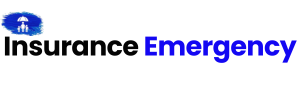Introduction
Insurance plays an imperative part in providing monetary insurance and security. In the USA, protection envelops different sorts, each taking care of explicit necessities, like health, life, auto, home, and disability, and that’s just the beginning. This article investigates the basics of Insurance in the USA, covering its highlights, benefits, detriments, and well-known suppliers, assisting you with settling on informed choices.
1. Understanding Insurance in the USA
- Definition: Insurance is a legally binding agreement in which the safety net provider compensates for misfortunes in return for payment installments.
- Importance: It shields against monetary weights emerging from unexpected occasions, similar to medical problems, mishaps, or property damage.
- Types of Insurance: Health, Life, Auto, Mortgage holders, Leaseholders, Inability, and Business Insurance.
2. Types of Insurance in Detail
- Health Insurance
- Definition: Covers clinical costs for ailments, wounds, and preventive considerations.
- Popular Plans: HMOs, PPOs, EPOs, and POS.
- Pros: Diminished clinical expenses, preventive consideration, emotional well-being support.
- Cons: Costly charges, rejections, and high deductibles.
-
Life Insurance
- Definition: Offers monetary help to recipients in the event of the policyholder’s passing.
- Types: Term Life, Entire Life, All inclusive Life, and Variable Extra security.
- Pros: Monetary security, domain arranging, charge benefits read more
- Cons: Significant expenses for more seasoned people, intricacy in picking the right approach.
-
Auto Insurance
- Definition: Safeguards against misfortunes from vehicle mishaps, robbery, or damage.
- Coverage Options: Risk, impact, extensive, uninsured driver.
- Pros: Monetary security, lawful consistency, inner harmony.
- Cons: Premium changeability, extra expenses for additional items.
-
Homeowners Insurance
- Definition: Covers property damage and risk in the event of mishaps inside the home.
- Coverage: Abiding, individual property, risk, and extra everyday costs.
- Pros: Security for important resources, inclusion for cataclysmic events.
- Cons: High charges in catastrophe inclined regions, certain prohibitions (like flood protection).

-
Disability Insurance
- Definition: Replaces pay in the event that the policyholder can’t work because of disability.
- Types: Present moment and long haul inability insurance.
- Pros: Income security, peace of mind.
- Cons: High expenses for long haul arrangements, extensive holding up periods.
-
Business Insurance
- Definition: Shields organizations from monetary misfortunes because of liabilities, property damage, or interferences.
- Types: General Risk, Property, Laborers’ Pay, and Business Interference.
- Pros: Risk the executives, lawful consistence, notoriety security.
- Cons: High charges for private ventures, complex strategies.
3. Features of Insurance Policies in the USA
- Premiums: The sum paid by policyholders to keep the inclusion dynamic.
- Deductibles: The sum a policyholder should pay before the guarantor covers costs.
- Coverage Limits: Greatest sum the back up plan will pay.
- Exclusions: Explicit circumstances not covered by the approach.
- Claims Process: How policyholders apply for benefits after an episode.
- Pros and Cons of Insurance
Pros:
- Financial Security: Inclusion safeguards against enormous, startling costs.
- Peace of Mind: Realizing inclusion exists if there should be an occurrence of crises.
- Legal Requirement: Specific kinds of protection are ordered, similar to accident coverage.
- Tax Benefits: Specific kinds of protection are ordered, similar to accident coverage.
Cons:
- High Costs: Charges can be costly, particularly for exhaustive approaches.
- Complex Policies: Arrangements can befuddle, with different prohibitions and terms.
- Delayed Payouts: Claims cycles can be extensive, influencing opportune monetary guide.
- Premium Increases: Claims history or changes in wellbeing can prompt premium climbs.
5. Selecting the Right Insurance Provider
- Reputation: Search for safety net providers with solid appraisals and client audits.
- Financial Stability: Actually look at appraisals from AM Ideal or Moody’s to guarantee back up plan unwavering quality.
- Customer Service: Open and steady client support is fundamental.
- Claim Settlement Ratio: Suppliers with a high case settlement proportion are great.
- Coverage Options: Pick a supplier that offers adaptable strategies to address explicit issues.

6. Top Insurance Providers in the USA
- Health Insurance: UnitedHealth Group, Anthem, Aetna, Cigna.
- Life Insurance: New York Life, Northwestern Mutual, MassMutual.
- Auto Insurance: State Farm, GEICO, Progressive.
- Homeowners Insurance: Allstate, Liberty Mutual, USAA.
- Business Insurance: Hartford, Travelers, Chubb.
7. How to Apply for Insurance
- Identify Needs: Determine personal or business needs for coverage.
- Compare Quotes: Use comparison sites or work with an agent to evaluate policies.
- Check Eligibility: Ensure you meet policy requirements, like medical exams for life insurance.
- Finalize the Policy: Review terms, confirm coverage, and sign up.
8. Frequently Asked Questions
- What happens if I miss a premium payment?
- Can I change my coverage?
- How do deductibles impact my claim?
- What’s the role of a co-pay in health insurance?
- Is insurance mandatory for all types?
Conclusion
Insurance is fundamental in shielding monetary soundness in different everyday issues. From health and disaster insurance to auto and business insurance, picking the right game plan incorporates a wary evaluation of prerequisites, monetary plans, and provider reputation. By getting a handle on the potential gains and drawbacks, components, and decisions accessible, individuals and associations in the Insurance USA can pursue informed decisions to protect their financial future.



